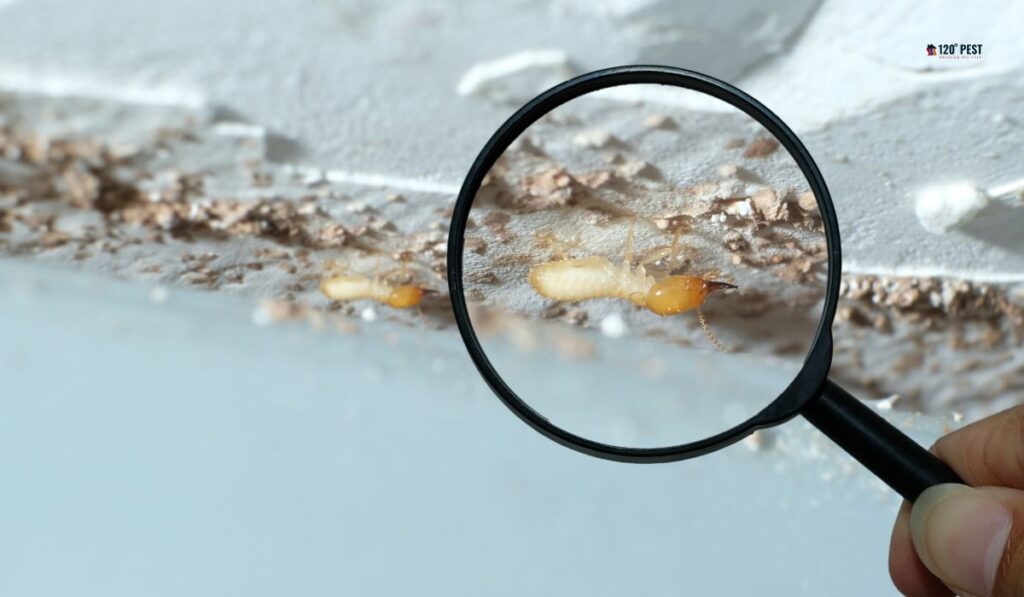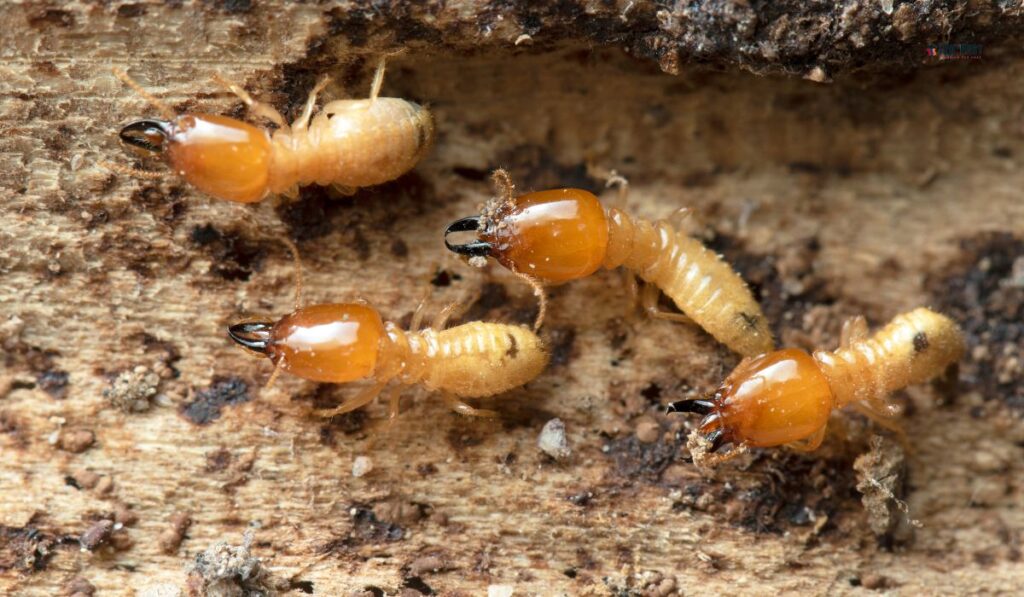The process of purchasing a home is not merely a transaction; it is a significant life decision that involves various considerations.
Among these, the need for a termite inspection stands out as a crucial step in ensuring the long-term well-being of your investment.
In this article, we’ll delve into the intricacies of termite inspections and why they are essential before finalizing the purchase of a home.
Importance of Home Inspections
Investing in a property involves a substantial financial commitment.
Home inspections are vital in uncovering potential issues that may need to be evident during a casual walkthrough.
These inspections offer a comprehensive assessment of a property’s condition, giving buyers an informed perspective.
Focus on Termite Inspections
While general home inspections cover a range of aspects, termite inspections specifically target a hidden threat that could compromise the structural integrity of a property.
Termites, often referred to as “silent destroyers,” can cause significant damage without overtly displaying their presence.
Understanding Termites
Types of Termites
- Subterranean Termites
- Subterranean termites live underground and often enter homes through the soil.
- They are the most destructive type and can cause extensive damage.
- Drywood Termites
- Drywood termites infest dry wood and can live entirely above ground.
- They are known for infesting furniture and wooden structures.
- Dampwood Termites
- Dampwood termites thrive in damp and decaying wood.
- They are attracted to areas with high moisture content.
Termite Infestation Risks

Understanding the risks associated with termite infestations is crucial.
Termites can compromise the structural integrity of a home, leading to costly repairs.
Additionally, termite damage may not be covered by standard homeowners’ insurance policies.
The Hidden Threat
Concealed Damages
Termites often operate silently, causing damage without immediate visibility.
They can hollow out wooden structures, making it challenging to detect the extent of the damage until it becomes severe.
Impact on Property Value
A home with termite damage may experience a decrease in value.
Discerning buyers may be hesitant to invest in a property with a history of termite infestation, impacting the resale value and marketability.
Legal Implications
State Regulations
State regulations vary regarding the disclosure of termite infestations.
Some states require sellers to disclose known termite issues, while others may place the responsibility on the buyer to conduct thorough inspections.
Contractual Obligations
Real estate contracts often include provisions related to property condition.
Buyers may have the right to request termite inspections as a condition of the sale, and sellers may be obligated to address any termite-related concerns.
Lenders and Termite Inspections
Mortgage Approval Requirements
Lenders may mandate termite inspections as part of the mortgage approval process.
Ensuring the property is free from termite damage protects the lender’s investment and provides a sense of security to the borrower.
Lender’s Perspective on Termite Inspections
From the lender’s perspective, a property with termite damage poses a financial risk.
Lenders may be reluctant to approve loans for homes with existing termite issues, emphasizing the importance of thorough inspections.
Prospective Homebuyer’s Dilemma
Informed Decision Making
Understanding the potential risks associated with termite infestations empowers homebuyers to make informed decisions.
Being aware of the property’s condition allows buyers to negotiate terms effectively.
Weighing the Risks
Prospective homebuyers must weigh the risks of termite damage against the investment they are about to make.
A thorough termite inspection can provide clarity, allowing buyers to factor potential repair costs into their decision-making process.
Cost Factors
Inspection Expenses
While termite inspections come with a cost, they are a worthwhile investment considering the potential consequences of undetected termite damage.
The expense of an inspection is relatively small compared to the potential costs of repairing extensive termite-related issues.
Potential Repair Costs
Unaddressed termite damage can lead to significant repair costs.
From structural repairs to replacing damaged wood, the financial implications of termite infestations can be substantial.
DIY Inspections
Identifying Warning Signs
Homeowners can perform basic inspections to identify potential warning signs of termite activity.
These include discarded termite wings, mud tubes, and hollow-sounding wood.
Limitations of DIY Approaches
While DIY inspections can provide initial indications, they are not a substitute for professional inspections.
Certified termite inspectors have the expertise and tools to conduct thorough assessments that go beyond surface-level observations.
Professional Termite Inspections
Certified Inspectors
Hiring a certified termite inspector ensures a thorough examination of the property.
Certified inspectors have the knowledge to identify signs of termite activity and assess the extent of any existing damage.
Thorough Assessment Process
Professional termite inspections involve a comprehensive assessment of both the interior and exterior of the property.
This includes inspecting the foundation, crawl spaces, attics, and wooden structures for any signs of termite infestation.
The Pre-Purchase Termite Inspection Process
Scheduling the Inspection
Before finalizing the home purchase, it is advisable to schedule a termite inspection.
This should be done after the initial general home inspection but before committing to the purchase.
On-Site Examination
During the on-site examination, the certified termite inspector will thoroughly inspect the property for any signs of termite activity.
This includes checking for damaged wood, mud tubes, and other indicators.
Comprehensive Reports
Documenting Findings
A professional termite inspector will provide a detailed report documenting their findings.
This report outlines any current termite infestations, the extent of damage, and recommendations for treatment or repairs.
Interpreting Inspection Reports
Understanding the terminology and findings in a termite inspection report is crucial.
Homebuyers should work with their real estate agent to interpret the report and determine the necessary steps moving forward.
Negotiating Terms Based on Inspection
Renegotiation Options
If termite issues are identified during the inspection, buyers have the option to renegotiate the terms of the sale.
This may involve requesting repairs or a reduction in the sale price to account for the cost of addressing termite-related issues.
Seller’s Responsibilities
In some cases, sellers may be responsible for addressing termite-related concerns.
Clear communication and negotiation between buyers and sellers are essential to reaching a mutually agreeable resolution.
Insurance Considerations
Termite Damage Coverage
Standard homeowners’ insurance policies often do not cover termite damage.
Buyers may need to explore additional insurance options or negotiate with sellers to address potential termite-related expenses.
Policy Implications
Understanding the implications of insurance coverage related to termite damage is essential.
Buyers should review insurance policies and seek clarification on coverage for termite-related repairs.
Long-Term Prevention Strategies
Post-Purchase Termite Prevention
After purchasing a home, implementing long-term termite prevention strategies is crucial.
This may include regular inspections, addressing moisture issues, and using termite-resistant materials in construction.
Regular Maintenance Practices
Homeowners should adopt regular maintenance practices to prevent termite infestations.
This includes promptly addressing water leaks, ensuring proper ventilation, and eliminating wood-to-soil contact around the property.
Common Misconceptions
“New Homes Are Immune”
Contrary to popular belief, even new homes are not immune to termite infestations.
Termites can enter newly constructed homes during the building process, making regular inspections necessary.
“I Can Handle It Later”
Delaying termite inspections and preventive measures can lead to more significant issues down the line.
Proactive measures are key to avoiding extensive termite damage and the associated costs of repairs.
Environmental Impact
Pesticide Concerns
While termite treatments often involve pesticides, there are growing concerns about their environmental impact.
Homeowners may explore eco-friendly alternatives and preventive measures to minimize the use of harmful chemicals.
Eco-Friendly Alternatives
Some termite prevention methods focus on eco-friendly alternatives, such as using nematodes or installing physical barriers.
These approaches aim to protect the property without resorting to traditional chemical treatments.
Future Home Value Protection
Termite-Resistant Construction
Advancements in construction materials and techniques have led to the development of termite-resistant options.
Investing in termite-resistant construction can be a proactive step in protecting the future value of a home.
Investment in Termite Prevention
Homeowners who invest in ongoing termite prevention measures contribute to the long-term durability of their property.
This proactive approach not only safeguards against termite damage but also enhances the overall value of the home.
Professional Advice
Realtors’ Recommendations
Realtors play a crucial role in guiding homebuyers through the process.
Their recommendations often include the necessity of termite inspections and the potential impact on the transaction.
Home Inspector Insights
Collaboration between home inspectors and termite inspectors provides a comprehensive view of a property’s condition.
Home inspectors may offer insights into potential areas of concern, further emphasizing the importance of termite assessments.
Conclusion
In conclusion, a termite inspection before buying a home is crucial for informed decision-making.
Hidden and silent, termites pose a serious threat to a property’s integrity.
Certified inspections provide valuable insights, aiding negotiation based on findings.
The cost is minimal compared to potential damages, and professional assessments ensure a comprehensive understanding.
Consider eco-friendly prevention and termite-resistant construction.
To safeguard your investment, schedule a termite inspection with 120 Pest Control.
It’s a vital step for your home’s long-term well-being and stability.
FAQs
Why are termite inspections important when buying a home?
Termite inspections are crucial to identify potential hidden threats that could compromise a property’s structural integrity. Termites, often silent destroyers, can cause extensive damage without immediate visibility.
What types of termites should I be aware of?
Subterranean termites, which live underground and can cause significant damage.
Drywood termites, known for infesting dry wood and furniture.
Dampwood termites, thriving in damp and decaying wood.
What are the risks associated with termite infestations?
Termites can compromise a home’s structural integrity, leading to costly repairs.
Standard homeowners’ insurance may not cover termite damage.
How do termites cause concealed damages?
Termites operate silently, hollowing out wooden structures, making it challenging to detect damage until it becomes severe.
What legal implications are associated with termite inspections?
State regulations vary, with some requiring sellers to disclose termite issues.
Real estate contracts may include provisions related to property condition.
Do lenders require termite inspections for mortgage approval?
Yes, lenders may mandate termite inspections to protect their investment and provide security to borrowers.
How can termite inspections empower homebuyers?
Understanding potential risks allows buyers to make informed decisions and negotiate terms effectively.
What are the potential costs of termite damage?
Inspection expenses are a small investment compared to potential repair costs.
Unaddressed termite damage can lead to substantial repair expenses.
Can homeowners perform DIY inspections for termites?
Basic inspections can identify warning signs, but professional inspections are essential for a thorough assessment.
What does a professional termite inspection involve?
Certified inspectors conduct a comprehensive assessment of the property, including the foundation, crawl spaces, attics, and wooden structures.





